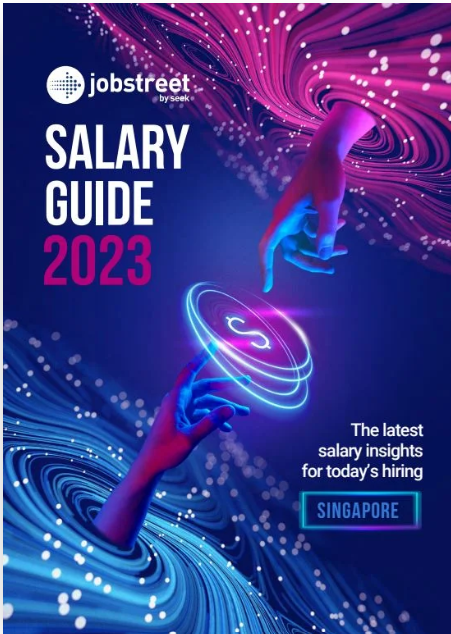With the demand for jobs reaching a new height, the job-hunting landscape is more ruthless than ever, evolving into a fiercely competitive arena. In such a scenario, every aspect of the job-seeking process carries immense weight. While honing your strengths is undoubtedly crucial, it is no longer sufficient; paying keen attention to the finer details is now a must. Details like the reference checking process—a potential make-or-break moment in securing the coveted position you’ve been eyeing.
Picture this: You’ve impressed the hiring manager with your impeccable resume and stellar performance in the interview, showcasing your potential as the perfect fit for the job. Yet, you still find yourself being pooled with equally qualified candidates. So, now you need a cherry on top of all of your records—something that would “wow” the manager, making you stand out.
It is important to have a clear picture of today’s scenario, where merely meeting the company’s requirements isn’t sufficient anymore. Enter the reference checking process, which serves as a catalyst for your interview process, helping you seal the deal. In this comprehensive guide, we’ll delve into the savvy tactics employed by candidates nowadays in order to navigate the reference-checking process effectively.
Before diving into strategies to give a good reference sheet to your employer, it’s crucial to grasp the process of reference checking itself.
It’s typically conducted just before the employer is ready to extend a job offer; it involves the hiring manager reaching out to your “references,” which should be provided to your employer at their request. It’s advisable to create a separate reference sheet rather than adding it directly to your resume.
After vetting the credibility of these references, which typically are your former supervisors, colleagues, or mentors who have worked closely with you in a professional capacity and could vouch for your work ethic, experience, and other instances that would provide the hiring manager with insights about your capabilities and character,
Thus, it becomes essential to have the right reference. Ideally, you need three references. Your references should be individuals who can attest to your accomplishments and interpersonal skills. A reference check helps the employer.
Verify the claims made by you in the reference sheet and assess your performance in a workplace environment, and, to an extent, gauge your capabilities on the basis of your past behavior and attitude—all crucial factors in the hiring decision.
So It’s important to keep the relevance of the relationship you had with them to the role you’re applying for in mind. So as to ensure that they have relevant knowledge of your abilities. Therefore, maintaining relevance between your relationship with the reference and the role you’re applying for is essential. to ensure they have relevant knowledge of your abilities.
Now, With a potential list of suitable references in hand, it becomes crucial to cultivate and maintain healthy relationships with them. This entails staying in touch, updating them on your career progress, and nurturing these connections.
By doing so, you ensure that you have a reliable source of reference when needed. But before providing someone as your reference, it’s important to have their consent and to determine if they would be willing to speak on your behalf.
Discussing with them before their meeting with your manager could prove beneficial, as it would allow you to brief them about the role you’re applying for.
By sharing your job description and the company culture and mentioning the specific skill the hiring manager might be on the lookout for, I would provide context, and help them tailor their response to highlight your qualifications. In alignment with the position and satisfy any other query your manager would have relevance to the said role.
Another thing that you should do is help your references prepare for the reference check.
You would do so by providing a list of common inquiries your manager might have and guiding them in answering them in a manner where your accomplishments and the challenges you overcame are highlighted, which would demonstrate your key competencies relevant to your job.
While a high level of intuition is essential to carrying out this task; one must not seek perfection in this step, but rather try to provide a comprehensive and basic outline that could help them specify and quote concrete examples that would substantiate their responses.
Some common queries your hiring manager might have had were:
- A simple verification of your employment history, confirming your job title and responsibilities handled by you at your previous position.
- A performance report that gives them a good idea about your strengths, weaknesses, and areas for improvement. Your punctuality, attendance, ability to meet deadlines, and overall work ethic. There might also be areas of inquiry.
- If relevant, they might also have a discussion regarding your leadership skills and ability to motivate and take on additional responsibilities.
- Your sociability with coworkers and clients. And the ability to cope in new and diverse environments.
- Assessing your attitude towards feedback and constructive criticism. And the response to such feedback, i.e., the improvement or learning curve.
- Last but not least, consider the reasons you left the previous job. Inquire if there were any issues or conflicts that may have caused you to do so.
After talking in depth about a positive scenario, it would only be right to help you, Prepare for a negative one as well.
You might encounter a reference who isn’t enthusiastic about you becoming a candidate for such a position and would be unwilling to endorse you positively.
If you anticipate reluctance or hesitation from a reference to your request, it’s best to address it proactively through a candid conversation, which could help you resolve such a situation. Both parties would get to express themselves and their concerns openly.
Additionally,It is best to avoid asking people you are uncertain about solely to add content to your reference page. Such actions would do you more harm than good; especially at this critical stage.
What Should I do after the reference check?
Once The reference check procedure is complete; follow up with your references and express your sincere gratitude for their support. Regardless of the outcome. You must recognize their effort and goodwill.
It is also important to maintain a positive relationship with your references for future opportunities and networking.
To master the reference check process, careful planning would be required; Effective communication and strategic relationship-building are also important factors. By selecting the right references and preparing them thoroughly, you would ensure that you effectively advocated for your candidacy.
Remember that your references can be powerful allies in your journey of job hunting. So, invest the time and effort to cultivate these relationships and navigate through this procedure confidently!








Leave a Reply